The partition of India remains a contentious topic, with various political and non-political parties often blaming each other for the event to serve their vested interests. In this context, even the Ahmadiyya Muslim Community, a purely religious and non-political organisation renowned for its advocacy of peace and brotherhood, has not been spared from such accusations. However, a fair review of historical facts categorically disproves the notion that the Ahmadiyya Muslim Community was responsible for the partition of India.
Hindus and Muslims are indispensable to each other
Days before his demise, the Founder of the Ahmadiyya Muslim Community, Hazrat Mirza Ghulam Ahmadas, penned a treatise named A Message of Peace. In this book, which was a sincere expression of his love for his motherland, he called for unity between Hindus and Muslims, the two great communities of India. He stated:
“O compatriots! This short epistle entitled A Message of Peace is being presented to you with all due respects and with a sincere heartfelt prayer that Almighty God may Himself inspire you and fill your hearts with trust in my sincerity, lest you misread this friendly gesture and consider it to be an attempt to gain some ulterior motive.”[1]
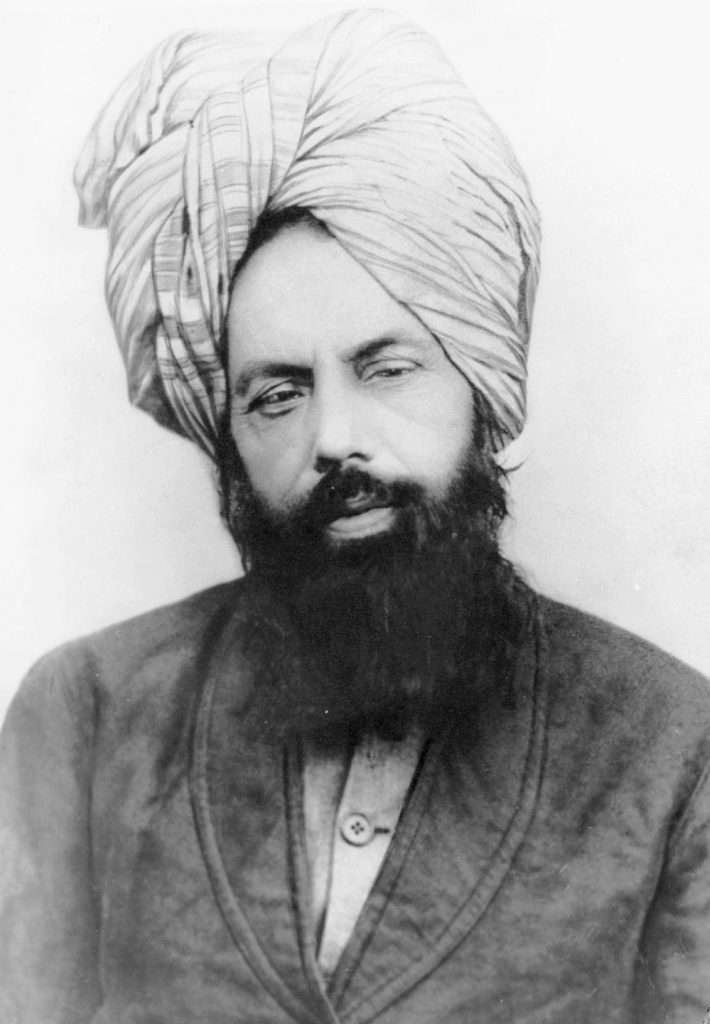
He further says:
“It is a common experience that calamities which cannot be averted by ordinary measures, and the difficulties which seem insurmountable, very often respond to the power of unanimity. Hence it would be against the dictates of wisdom for one to not benefit from the blessings of unanimity. The Hindus and the Muslims are two great nations inhabiting this country. It is hard to believe that either of the two, for instance the Hindus, would one day gain total domination over the Muslims, and turn them out of this country altogether. Likewise, it is not possible for Muslims to expel the Hindus from their homeland. It should always be borne in mind that Hindus and Muslims are indispensable to each other in this country. If one is beset with a calamity, the other will inescapably share it. If either one intends to humiliate the other, out of egoistic pride or vanity, then it will not escape the consequent disgrace itself. And if anyone among them falls short of showing concern for his neighbour, then he too will suffer the ill effect of his callousness. Anyone who contemplates annihilation of the other is like one who saws off the branch on which he is sitting. With the Grace of Allah, you have also got a measure of education; it behoves you now to eschew grudge and promote mutual love. Similarly, the dictates of your wisdom require that you abandon the course of callousness and adopt an attitude of compassion and sympathy. The hardship of this life is like unto a journey in a desert in the midst of summer on a hot sunny day. It would be futile to take this arduous journey without cool water. It is the cool water of mutual love which you so direly need to extinguish this burning fire and to save you from dying of thirst. In precarious times such as these I invite you to truce, as reconciliation is urgently required by both nations.”[2]
Hence, Ahmadi Muslims, following in the footsteps of their founder, have always upheld the banner of unanimity and consistently strived to end dissension. An unbiased study of history reveals that Ahmadis have continuously worked to unite Hindus and Muslims. Whenever disputes arose between the two communities, the Caliphs and leaders of the Ahmadiyya Muslim Community took all necessary measures to resolve them. They wrote letters, offered advice, and met with leaders from both communities, urging them to work towards peace.
Desire for an independent and united India
When the days of India’s freedom drew near, the then Worldwide Head and the Second Caliph of the Ahmadiyya Muslim Community, Hazrat Mirza Bashiruddin Mahmud Ahmadra, recognised the dire need of maintaining communal harmony, particularly between Hindus and Muslims, and took efforts towards the same. He proclaimed:
“In this precarious time, I urge my countrymen that they free their hearts from enmity and prejudice, for however sweet and pleasing such emotions may seem, they are the most bitter and can inflict the greatest harm.
“As the events unfold, it seems that the days of India’s freedom have arrived. God is breathing a new spirit into our hearts and the light of hope is shining from behind the clouds of darkness. Do not despair if the darkness is growing deeper, for when the light manifests itself, it will engender brighter lights, unfolding God’s will.
“Hence, let not the hatred in your hearts turn God’s mercy into His wrath and His grace into His anger, for He dislikes anyone who is stubborn, and he who is averse to truth”[3]
His Holiness continues:
“Oppression is wrong, whether committed by a British or an Indian. Strive to reach a resolution through love and kindness so that hearts are purified from all forms of hatred. Establish a government that marks a new era of love and unanimity. Remember, the world is one organic whole, of which different nations are different parts… Therefore, adopt means that would make India a strong brick in the foundation of a peaceful and united world.”[4]
Hindus and Muslims should unite with each other
Addressing a large gathering of Hindus and Muslims, the Second Caliph of the Ahmadiyya Muslim Community delivered a public speech at Bradlaugh Hall, Lahore, on 14 November 1923. In his speech, he emphasised that the only solution to the prevailing tensions was for Hindus and Muslims to unite. His Holiness outlined guiding principles that, if followed, would enable the two communities to coexist peacefully.
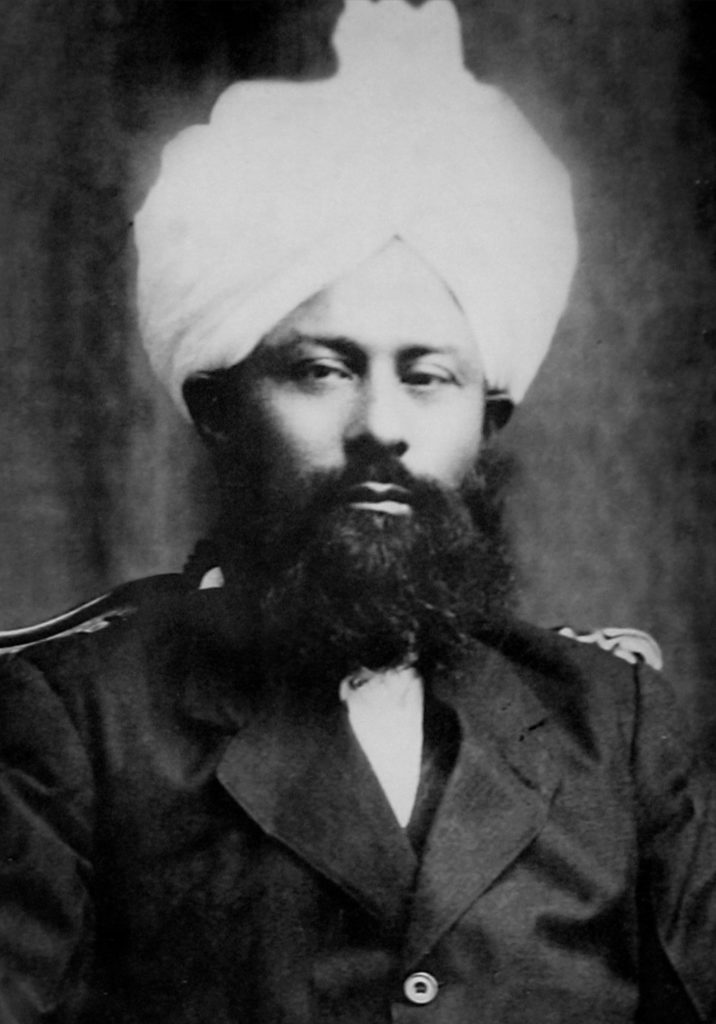
During his speech, His Holiness also addressed the misconception that Ahmadis were responsible for sowing discord among people. He stated:
“Some people believe that we are the cause of disorder in society. They think that we create rifts in friendly relations. However, the truth is that we are the greatest enemies of dissension. Conflict is the furthest thing from our hearts. We abhor anything that might eventually lead to discord. Instead, we are ready to make any sacrifice for causes we believe will advance the prosperity of our nation.”[5]
Disagreement in matters of religion is not an impediment to good relations
In his speech, the Second Caliph of the Ahmadiyya Muslim community also pointed out that doctrinal disagreements between Hindus and Muslims should not become an obstacle in their worldly relations. He addressed both communities, saying:
“Disagreement in matters of religion is not an impediment to good relations… It is not appropriate for Muslims to sever worldly ties with them [Hindus] and not reconcile with them due to doctrinal differences. No religion forbids its followers from uniting with people of other faiths on non-religious matters, nor does any religion exhort its adherents to always fight with others. Such a notion contradicts human instinct. Any religion promoting this idea will be rejected by man.
“Hence, if religious disagreements are not a cause of discord in worldly affairs, why is there hostility between Hindus and Muslims? On the one hand, the prevailing circumstances call for unity while on the other, their religions also urge them to live as brothers. Despite this, why is there dissension instead of harmony between the two communities?”[6]
Through this speech, His Holiness provided guidance to Hindus and Muslims on how they can peacefully coexist in India, protecting each other’s rights and respecting each other’s sentiments.
Message to the members of the First Round Table Conference
In response to India’s growing demand for self-governance, a series of Round Table Conferences were held in England, the first of which took place in 1930. Many leaders from Hindu and Muslim communities were invited to participate.
On this occasion, the Second Caliph of the Ahmadiyya Muslim Community authored a treatise titled The Solution of the Current Political Issue of India. This book was sent to London to coincide with the conference, aiming to guide both the participants and the British government towards making just decisions.
The treatise offered a scholarly analysis of India’s situation and proposed a satisfactory solution to the political problems of the time. His Holiness emphasised that the most crucial aspect of the country’s political development should be the protection of minority rights and their status in an independent India. His deep commitment to peace and his fervent desire for Hindu-Muslim unity are clearly reflected in his words.
“I remind the members of the Round Table Conference, Members of Parliament, and all representatives of India and Britain that they are entrusted with a grave responsibility by God. Therefore, they should free themselves from prejudice and fulfil this duty in a selfless manner. If they do so, their names will be remembered with great reverence, and future generations, who would benefit from their decisions, will pray for them. Above all, they will be recipients of God’s bounty.
“Selfishness is detrimental even in matters that are temporary in nature. However, it would be a grave injustice if personal enmity and selfish motives were allowed to influence decisions, especially in such affairs that will impact millions of people and last for thousands of years. Hence, I pray to God that He keeps your motives pure, your morale high, and your minds sharp. May this conference and its outcomes serve as a cause of peace between India and Britain, and foster unity between Hindus and Muslims. If we achieve this, we can truly say that we have fulfilled our responsibilities to God and to people – both of our time and of the coming generations.”[7]
Unsurprisingly, the book was received with great response. Many leaders sent letters of gratitude to His Holiness and also wrote reviews applauding his efforts and views.
Inviting all communities to peace
The Second Round Table Conference was viewed with much anticipation for the participation of the Indian National Congress. Sir Zafarullah Khanra, a prominent figure in Indian politics at the time and a member of the Ahmadiyya Muslim Community, made all efforts to bring the Congress and the Muslim League to an understanding. However, his attempts were unsuccessful.
Later, with the failure of the Cripps Mission, a great discord arose between India and Britain, so much so that an agreement seemed almost impossible in the situation. During this crucial time, the Second Caliph of the Ahmadiyya Muslim Community, guided by Divine visions and revelations, called on both nations towards pursuing peace. He said:
“It is time that Britain made peace with the countries under its empire, especially India. It should set aside all the past disparities and reconcile with India so that both countries may strengthen the foundations of global development and world peace. O Britain! It is better for you to make peace with India… Similarly, I suggest that India also let go of all past disputes with Britain.
“I extend a message of peace to the world. I invite Britain to make peace with India. Similarly, I request India to make peace with Britain. I also urge every community in India, with great respect and utmost humility, to reconcile with one another. I assure every community that we are ready to make peace with them on worldly matters. I want to make it clear that we hold no enmity towards anyone. We are not enemies of the Congress, nor do we hold any enmity towards the Hindu Mahasabha. We have no animosity towards the Muslim League, nor are we against the Unionist Party (Zamindara League) or the Khaksar Movement. By God, we have no enmity towards the Ahrar either. We are well-wishers of all. Our only opposition is to those matters that interfere with our religion. Otherwise, we are no one’s enemy. Our desire is to be left alone so that we can fulfil our responsibilities towards God and serve His creation.”[8]
These words of His Holiness clearly demonstrate that the Ahmadiyya Muslim community has consistently worked towards peace, and not against it.
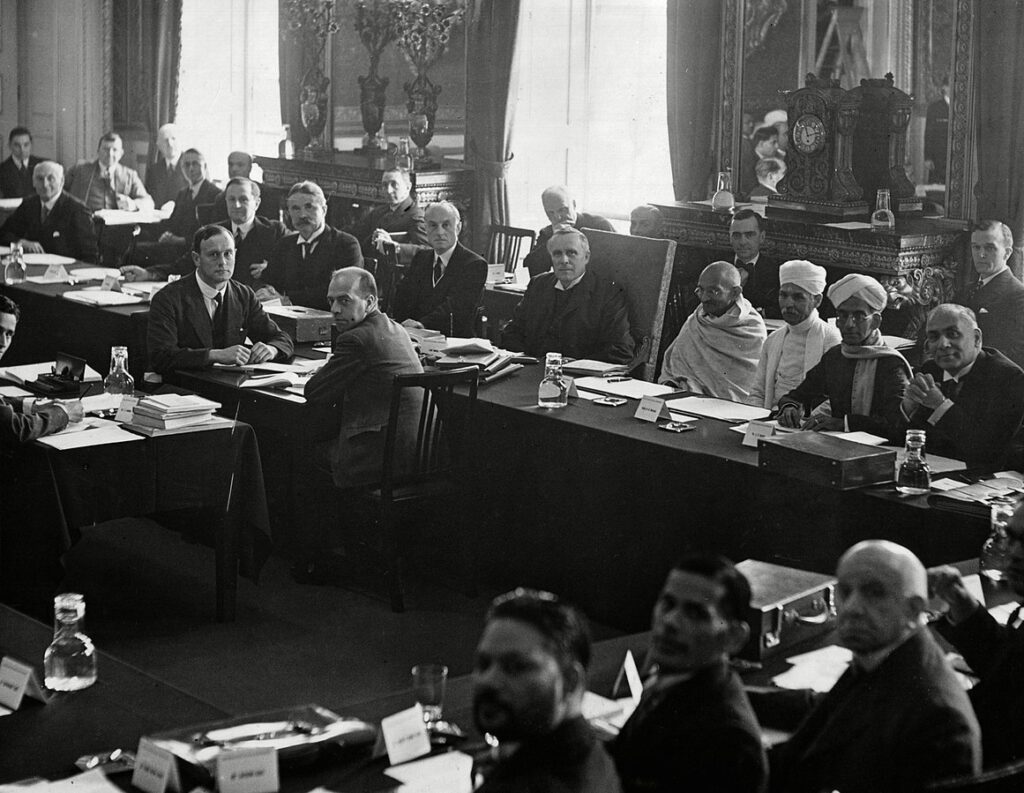
It is a well-known fact that disputes are resolved through discussions and dialogues. When this remedy is ignored, or when the leaders of the disputing parties fail to establish peace through these means, the repercussions may last for a long time, and the future generations will be bound to face the ill effects. Unfortunately, this was the case in the Indian subcontinent.
In 1946, the dispute between the Congress and the Muslim League was intensifying. As the days of India’s freedom approached, it became evident that if these disparities were not addressed promptly, they could lead to prolonged conflicts lasting decades.
Continued efforts towards creating harmony
His Holiness continued his efforts to unite Hindus and Muslims of India. In 1946, when the Cabinet Mission arrived in Delhi to address the escalating political conflict, His Holiness directed the attention of the members of the Mission, the Muslim League and the Congress to their responsibilities, urging them to resolve the issue in a just manner. He advised the Mission, saying:
“I tell the members of the Mission that if they fulfil the requirements of justice, they will certainly succeed in establishing peace between Hindus and Muslims… If peace is achieved in India through dialogue and understanding, it will undoubtedly prove beneficial for India and the whole world.”[9]
Similarly, His Holiness advised the Muslim representatives and said:
“I tell the Muslim representatives that India belongs to us just as it belongs to Hindus. The actions of a few wrongdoers should not lead us to act in a way that weakens our nation. We have played a vital role in building this great country… We have strived for 800 years for the progress of this nation. The corpses of those patriots who sacrificed their lives are scattered all across the country, from Peshawar to Manipur and from the Himalayas to Madras. Similarly, Islamic monuments can be found in all regions. Hence, are we to bid goodbye to all of them? Are we still to think that India belongs to Hindus alone? Nay, India belongs to us more than it belongs to Hindus.”[10]
His Holiness further said:
“I wish that, with mutual agreement, we continue to live together in this country as we have been living for a long time… Hence, I advise that this issue be resolved peacefully and not through forceful means. I assure Hindus that I have sincere feelings for them, in the sense that I wish Hindus and Muslims to become united, so that these step-brothers may live in this country as true brothers… I urge that every measure should be taken to preserve the unity of India.”[11]
His Holiness also addressed the Hindus, especially the members of the Congress, urging them to take decisions based on morality. His Holiness further said:
“This is a time to seriously think about how our nation can attain freedom in a way that ensures the happiness of all people. Otherwise, our freedom will only be a change from one form of imprisonment to another.”[12]
Meetings with leaders, urging for peace
His Holiness’s efforts were not limited to writing letters or messages, which he sent to many. Instead, he used all means to establish peace in India. In September 1946, his Holiness travelled to Delhi, which, in those days, had become the centre of political activities in the country. He met with Maulana Abul Kalam Azad, Pandit Jawaharlal Nehru, Mahatma Gandhi, and various other leaders.
His Holiness’s efforts to establish peace extended beyond writing letters or messages, which he sent to many. He actively sought to mediate in person between leaders of different parties. In September 1946, His Holiness travelled to Delhi, which, at the time, had become the epicentre of political activity in the country. He met with Maulana Abul Kalam Azad, Pandit Jawaharlal Nehru, Mahatma Gandhi, and various other leaders.
During these meetings, the Ahmadiyya Caliph conveyed that the ongoing conflict was unjust. He urged the Congress and the Muslim League to make mutual concessions to prevent the conflict from escalating into a more dangerous crisis. His Holiness stated:
“While you fight, it is the lives of thousands of people in small towns and villages—who are entirely alien to the concept of civility—that are affected. They end up killing each other, plundering each other’s wealth, and burning each other’s homes. For instance, in Dhaka, as a result of the conflict between the League and the Congress, our library and mosque were burnt, even though we were not involved in the fighting. We are firmly against creating disorder. But, the Hindus who burnt our mosque and library believed they had achieved something great. This proves that such discordances can blind people’s instincts, making them incapable of distinguishing between right and wrong.”[13]
When His Holiness urged them to take action in light of all this, he was only met with the response that it was he who was capable of addressing the issue, not them.[14]
Conclusion
History later proved that every word of caution from His Holiness came to pass. No unity or understanding could be established between the Congress and the Muslim League until India’s independence.
To safeguard the rights of all people, the Ahmadiyya Muslim Community left their homeland. Even at that time, the Caliph of the Ahmadiyya Muslim Community took every possible measure to minimise the losses that may happen from this inevitable occurrence. The land of Punjab was painted red with blood, witnessing a violence unparalleled in the history of the region. Hundreds of thousands were massacred, and many more were forced to leave their homes to save their lives.
The Ahmadiyya Muslim Community has always championed peace and unity. It is unfortunate that such a community is accused of being acted behind the partition of India. The historical facts presented here offer a just review that may help people understand the truth.
END NOTES
[1] A Message of Peace, p. 10
[2] Ibid p. 11-12
[3] Anwarul Uloom, v. 11, pp. 237-238
[4] Ibid
[5] Anwarul Uloom v. 7, p. 297
[6] Anwarul Uloom, v. 7, p. 300
[7] Anwarul Uloom, v. 11, pp. 493-494
[8] Alfazal, 17 January 1945
[9] Tarikh-e-Ahmadiyyat, v. 9, pp. 306-311
[10] Ibid
[11] Ibid
[12] Ibid
[13] Alfazal, 13 November 1946
[14] Ibid

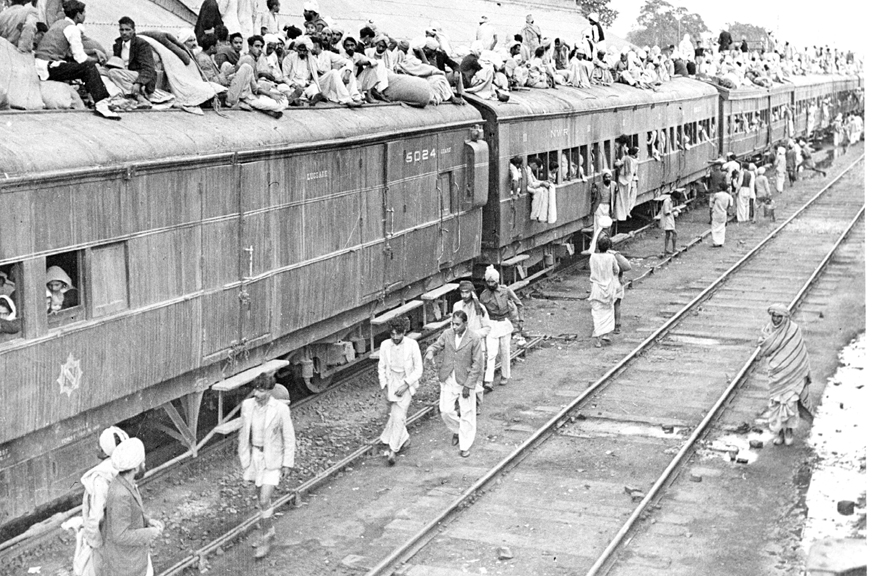









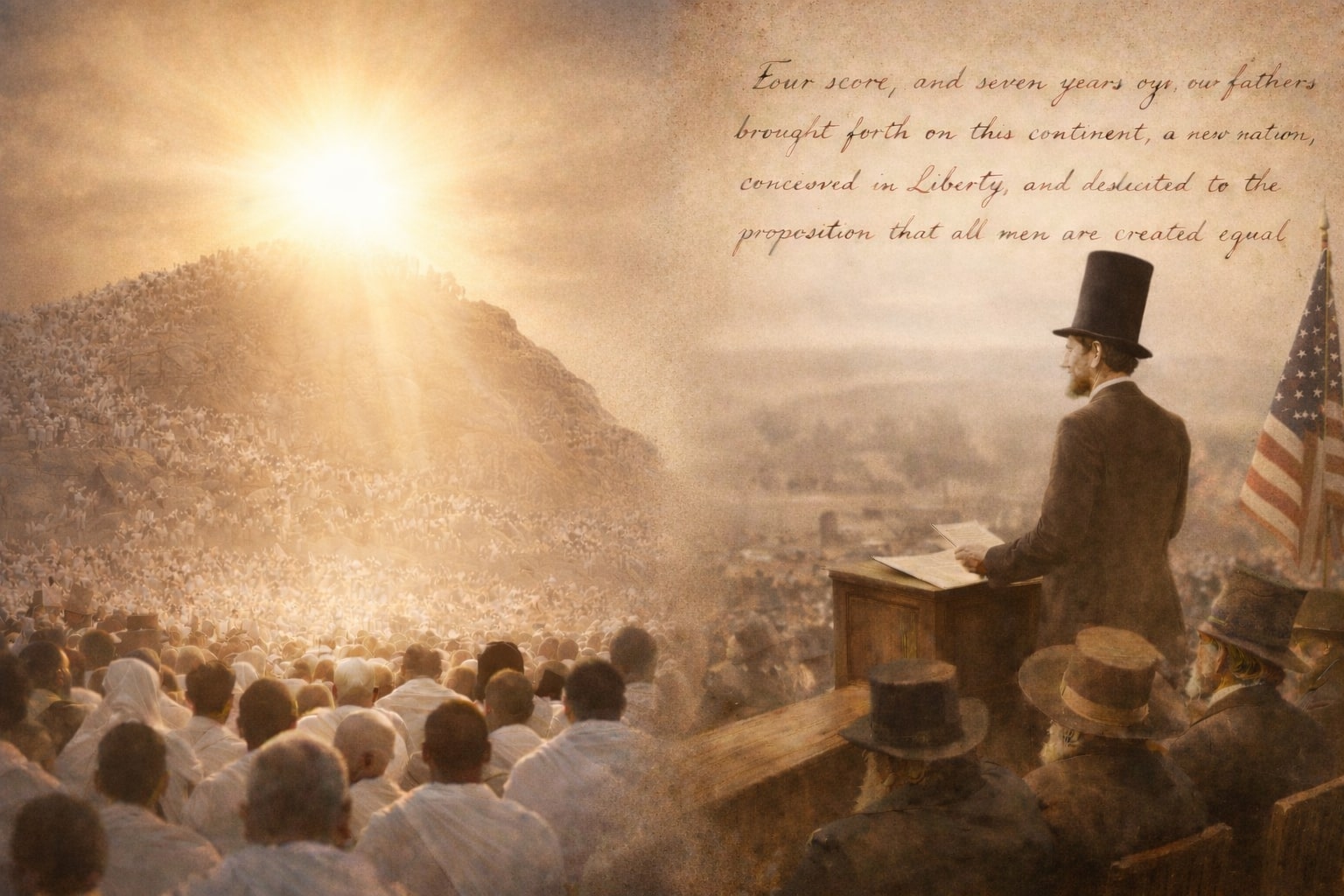
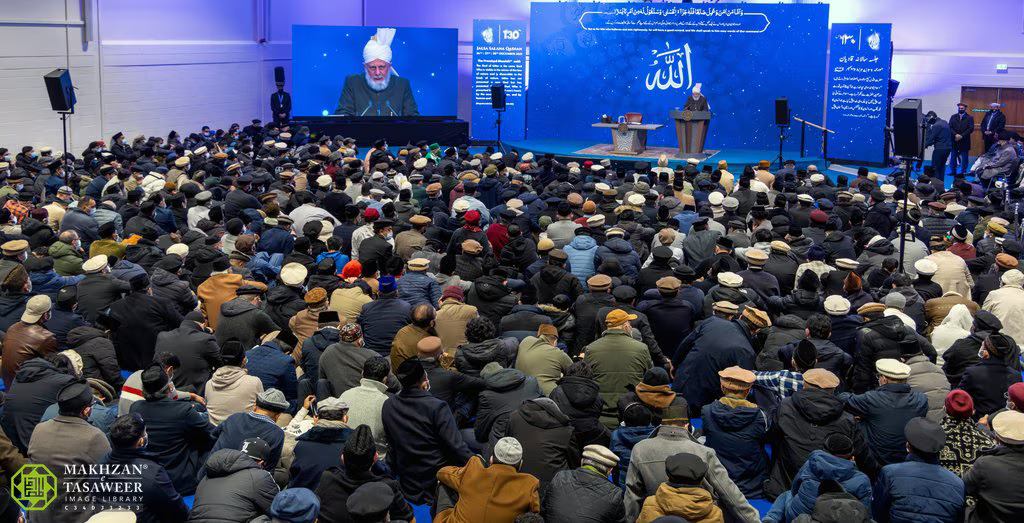
0 Comments